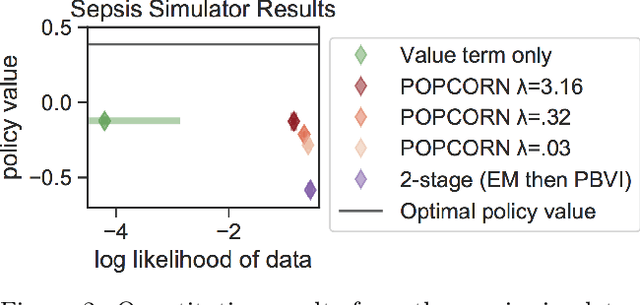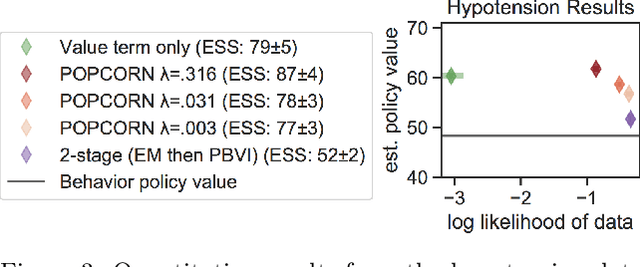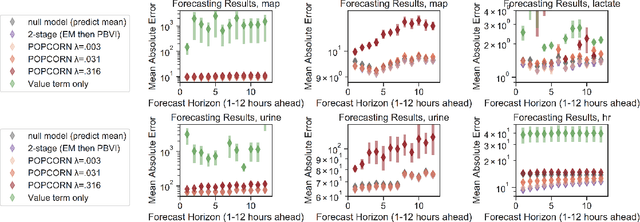POPCORN: Partially Observed Prediction COnstrained ReiNforcement Learning
Paper and Code
Jan 13, 2020



Many medical decision-making settings can be framed as partially observed Markov decision processes (POMDPs). However, popular two-stage approaches that first learn a POMDP model and then solve it often fail because the model that best fits the data may not be the best model for planning. We introduce a new optimization objective that (a) produces both high-performing policies and high-quality generative models, even when some observations are irrelevant for planning, and (b) does so in the kinds of batch, off-policy settings common in medicine. We demonstrate our approach on synthetic examples and a real-world hypotension management task.
* Accepted, to appear at AISTATS 2020, Palermo. Note that this version
is not the final camera-ready; that will appear in a few weeks
 Add to Chrome
Add to Chrome Add to Firefox
Add to Firefox Add to Edge
Add to Edge